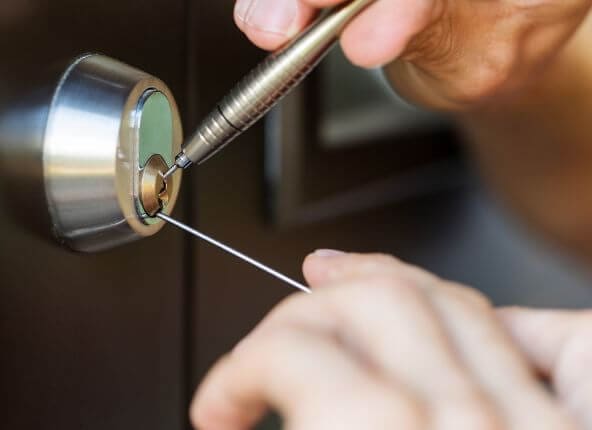
How Easy Is It To Bypass a Europrofile Lock Cylinder?
What is a Europrofile Lock Cylinder? Most people have at least one Europrofile lock cylinder...
Do you want to know whether a hardwired or wireless alarm system is best?
Are you confused about the differences between the two?
In this video, we’ll go through the two types, and you’ll end up with a better idea of which is better for you.
[yotuwp type=”videos” id=”caqYYL773oc” ]
As you know, we love answering questions here at Amberley Security. One of those about alarm systems is, which is best — hardwired or wireless.
Now, I guess it’s probably sensible to first explore what I mean by hardwired and wireless. When alarm systems first came out, all the detectors were connected back to the control panel by cabling, so that’s what hardwired means. All of the detectors are connected back by wired cables.
Wireless, obviously, is the opposite. Everything’s connected wirelessly by radio signals. Some of the original wireless systems still needed the siren connected by wires, and many systems still need the control panel to be connected to mains electricity by wires.
But, that’s basically what we mean by hardwired and wireless.
Wireless systems. generally speaking, are quicker to install because you haven’t got to run the cables throughout the house to do the job properly. Really, you’ve got to hide the cables as best as you can. That means drilling holes in walls, and running cables up and down cavities, for instance.
If you’re lucky and you’ve got an older house with a picture rail, then you can hide cables above the picture rail. But that’s not very often possible, certainly in any house that’s built probably after about 1950. So that’s one of the downsides of a hardwired system, is it takes a long time to install.
Conversely, a wireless system is quicker to install. Hardwired systems though, have the advantage that they cannot be hacked or otherwise breached, because you physically can’t tap into the signals. The original wireless systems were very susceptible to, both hacking and jamming.
You’d sometimes find when a taxi would pull up outside perhaps with a slightly dodgy transmitter, and it would transmit on all frequencies and just clog up the airwaves, and your wireless system wouldn’t work. And burglars took advantage of that, and just jammed the system so that when a detector noticed that it had been breached, it would try and signal back to the control panel, but the control panel wouldn’t get that signal.
Similarly there is hacking of wireless systems, where people have a little thing called a software defined radio, it snoops in on the radio signals between detectors and control panel, and often between the remote control fobs and the control panel. The burglar can then mimic the action of the key fob and disarm the system, allowing them to break in without having to worry about the alarm system.
Modern systems, particularly top-end systems have got that sussed, they use encrypted technology, and channel hopping to overcome that, so it’s not a problem. if you go for a high-end system. Cheaper systems may be, a little bit more susceptible to that.
Another thing that you might want tp take into consideration,wireless systems tend also to be cheaper to buy, as well as to install is.
Which is best? Well, that’s not for me to decide. I don’t like giving a definitive answer based on my opinion. It’s horses for courses. Whatever you decide is best for you. What we are trying to do is to give you the pros and cons of everything so that you can make your own mind up.

What is a Europrofile Lock Cylinder? Most people have at least one Europrofile lock cylinder...

Losing a car key or dealing with a broken one can be a frustrating experience...

If you’ve ever asked yourself that question, then this is the article for you. Consider...
Lorem ipsum dolor sit amet, consectetur adipiscing elit.
For further information about Amberley Security, please do not hesitate to get in touch. We are always happy to help.